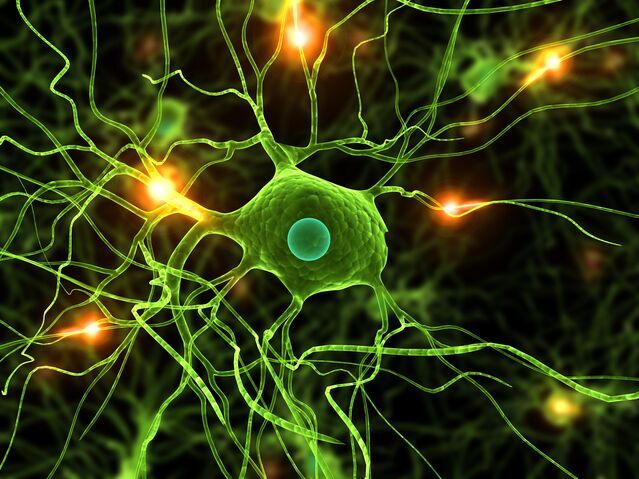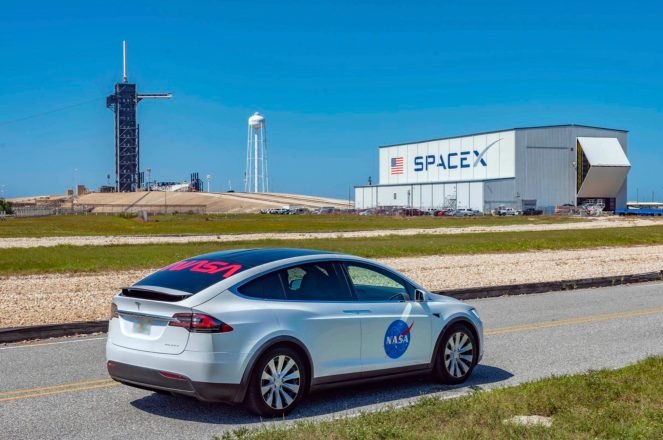New research reveals fascinating links between thoughts and immunity.


Will we ever live on Mars?
Since the dawn of the Space Age, the planet Mars has been the focus of two ambitious projects. One is the search for life forms native to the planet; the other is human colonization.
For decades, Mars colonization advocates have been promising potential settlers that the time for leaving Earth is nearing. In fact, in terms of producing the actual space hardware—the capability to transport large numbers of passengers into space and the engines and life support to ferry them safely to Mars—we’re not much closer to a Mars colony than we were in 1972, when the last Apollo lunar mission returned to Earth, so don’t sell your house on Earth just yet. On the other hand, we’ve had one mind-blowing discovery after another about Mars as a result of unmanned exploration conducted over the last decades by NASA.
The evidence that the planet is home to microscopic lifeforms—something akin to Earth’s bacteria—has been accumulating slowly, but consistently. While few astrobiologists are ready say that, yes, there’s life there, until we have a photo of microorganisms swimming in the microscope field, that moment is really approaching. And we’ll probably get to it long before the first astronaut boots cast their prints into the Martian surface dust.
Education Saturday with Space Time.
To quote eminent scientist Tyler Durden: “On a long enough timeline, the survival rate for everyone drops to zero.” Actually… not necessarily true. If the quantum multiverse is real there may be a version of you that lives forever.
F we can’t ever peer into these other realities that are used to explain quantum mechanics, how do we know they exist? In order to understand what happens to those different branches, and to understand why we find ourselves in one of them, we need to embrace one of the interpretations of quantum mechanics. For example, the Copenhagen interpretation, which says that thefunction branches that we don’t observe somehow vanish at the moment of measurement. Or the Many Worlds Interpretation, which states that those other branches are just as valid as ours – implying that reality may split and multiply in all possible ways. In that case, we only see one branch because we live in that branch, and the others are rendered inaccessible by decoherence. But today I’m going to offer a test. Admittedly NOT a very useful one – but one that’s fun to think about. We’ll call this test quantum immortality. It’s based on the famous Schrodinger’s cat thought experiment.
The stem cell treatment is derived from human placentas and is being developed by New Jersey biotech company Celularity. The early-stage trial will include up to 86 coronavirus patients with symptoms who will receive infusions of the stem cell therapy to assess the its safety and whether it prevents the patients from developing more severe illness, The New York Times.
The stem cells from the placenta used in this treatment are “natural killer” cells that guard a developing fetus or newborn from viruses in the mother. Celularity has been testing this treatment approach in cancer patients.
Initial results from the early trial are expected 30 to 60 days after the first patients receive their dose, Dr. Robert Hariri, Celularity’s founder and chief executive, told The Times.
Ira Pastor, ideaXme life sciences ambassador and founder of Bioquark, interviews Dr. Robert Hariri, MD, PhD, surgeon, bio-medical scientist and highly successful serial entrepreneur in two technology sectors: bio-medicine and aerospace.
Dr. hariri utilizes biomedicine to aid human longevity:
Dr. Hariri is Chairman, Founder, and CEO, of Celularity, Inc., a clinical-stage cell therapeutics company developing allogeneic cellular therapies, engineered from the postpartum human placenta, in cancer immuno-therapy and functional regeneration, which recently got initial clearance from the U.S. Food and Drug Administration (FDA) to begin early-stage clinical trials on a potential treatment for Covid-19.
Dr. Hariri is also Co-Founder and Vice Chairman, of Human Longevity, Inc., a company merging extensive amounts of human genotype and phenotype data with machine learning, so that it can help develop new ways to fight diseases associated with aging.
Dr. Hariri served as Chairman, Founder, Chief Scientific Officer, and Chief Executive Officer of Celgene Cellular Therapeutics (acquired by Bristol Myers Squibb), one of the world’s largest human cellular therapeutics companies, where he pioneered the use of stem cells to treat a range of life threatening diseases and has made transformative contributions in the field of tissue engineering.
Recognition, Awards and Accolades:
The HPC Scout Pro electric bicycle, which can hit 45 mph (72 km/h), doesn’t fit neatly into any of the standard electric bicycle classes.
Class 1 and 2 e-bikes can reach speeds of 20 mph (32 km/h) while Class 3 e-bikes reach 28 mph (45 km/h). I used to think Class 3 e-bikes were fast. Now I think the system needs more classes.

Cosmic Starvation
The first possibility is called ram pressure stripping, a process through which all of the gas that a galaxy would use to form stars is vacuumed away by nearby intergalactic plasma. The other is that the environment inside a galactic cluster simply becomes too hot for cosmic gases to cool and condense into stars, rendering it useless as fuel.
“When you remove the fuel for star formation, you effectively kill the galaxy,” Brown writes, “turning it into a dead object in which no new stars are formed.”
US President Barack Obama called the Ebola outbreak in West Africa a threat to global security on Tuesday and broadly expanded the US response by ordering thousands of troops to the region along with an aggressive effort to train health care workers and build treatment centres.
He called on other countries to quickly provide more helpers, supplies and money.
“If the outbreak is not stopped now, we could be looking at hundreds of thousands of people affected, with profound economic, political and security implications for all of us,” Obama declared after briefings at the Centers for Disease Control and Prevention in Atlanta.
Obama acted under pressure from regional leaders and international aid organisations who pleaded for a heightened US role in confronting the deadly virus, especially in the hardest-hit countries of Liberia, Sierra Leone and Guinea.
“In West Africa, Ebola is now an epidemic,” Obama said.
“It’s spiralling out of control, it is getting worse.“
The stepped-up US response includes sending 3,000 troops to the region, including medics and corpsmen for treatment and training, engineers to help build treatment facilities and logistics specialists to assist in patient transportation.
Obama also announced that Major General Darryl Williams, head of US Army Africa, will head a military command centre based in Liberia.
The announcement came the same day the World Health Organisation warned that the number of West African Ebola cases could begin doubling every three weeks and that the crisis could end up costing nearly 1 billion US Dollars to contain.
Nearly 5,000 people have become ill from Ebola in Liberia, Sierra Leone, Guinea, Nigeria and Senegal since it was first recognised in March.
The World Health Organisation says it anticipates the figure could rise to more than 20,000.
Obama described task ahead as “daunting” but said what gives him hope is that “the world knows how to fight this disease.“
You can license this story through AP Archive: http://www.aparchive.com/metadata/youtube/045def289101ceb2e47170324839d408
Find out more about AP Archive: http://www.aparchive.com/HowWeWork
‘If we wait for a pandemic to appear, it will be too late to prepare’ — George W. Bush warned about getting ahead of something like COVID-19 way back in 2005.
» Subscribe to NowThis: http://go.nowth.is/News_Subscribe
» Sign up for our newsletter KnowThis to get the biggest stories of the day delivered straight to your inbox: https://go.nowth.is/KnowThis
In US news and current events today, listen to Pres. Bush urgently stress the importance of being prepared for a pandemic back in 2005. In this clip, Pres. George W. Bush addressed the Nat’l Institutes of Health about having a game plan to fight future pandemics. Pres. Bush was reportedly alarmed after reading a history book about the 1918 flu pandemic where millions had died. Out of that interest came a grand outline for future administrations to follow in response to a global pandemic.
Listening in the audience that day was Dr. Anthony Fauci, dir. of the Nat’l Institute of Allergy and Infectious Diseases and current leader in the fight against COVID-19 today.
For the latest coronavirus news and COVID-19 updates, subscribe to NowThis News.
#GeorgeWBush #Pandemic #Fauci News #NowThis #NowThisNews
Connect with NowThis

According to a report from a CBS affiliate in Wichita Falls, Tex., Texas Governor Greg Abbott told a local television reporter he had the opportunity to talk to Elon Musk and he’s genuinely interested in Texas and genuinely frustrated with California.
Tesla stopped making cars at its Fremont plant on March 23. Elon Musk shared frequently his views that the state and local restrictions aimed at mitigating the spread of the coronavirus were actually not in the best interest of California, the people of California, and not Tesla either.
Looking back in history, the GM automotive assembly plant in South Fremont used to be the town’s largest employer. In the 1980s, the plant became a joint venture automotive assembly plant of Toyota and GM, and renamed NUMMI becoming one of the most effective small car factories for GM. In early 2010, NUMMI came to an end and closed. Enter TESLA to rescue Fremont. Tesla acquired part of the plant and in June 2010 by Elon Musk earmarked it as Tesla’s primary production plant. By 2017, Tesla was the largest employer in Fremont with roughly 10,000 employees.